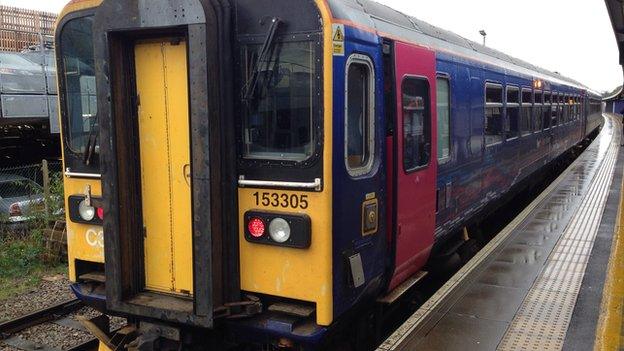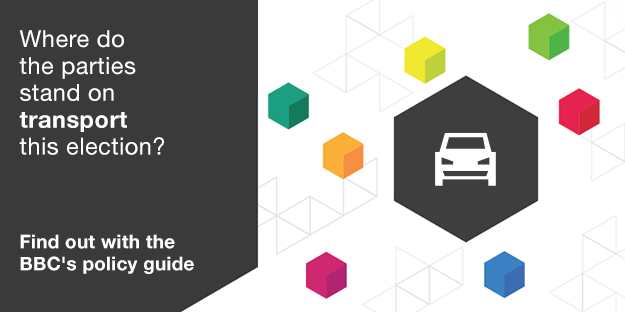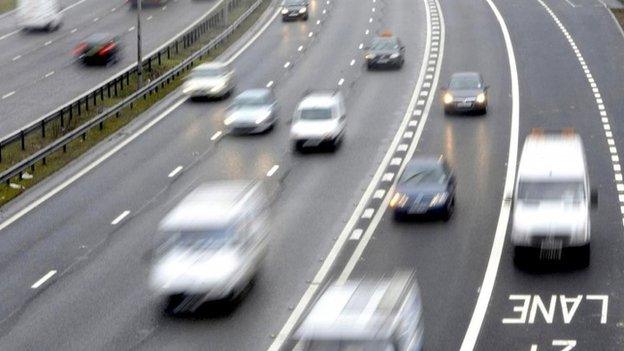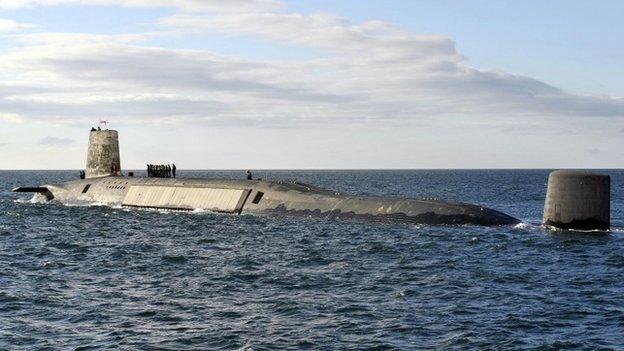Election 2015: Conservatives in rail fare inflation pledge
- Published

Regulated rail fares have increased by no more than RPI inflation for the past two years
The Conservatives have said regulated rail fares in England would rise by no more than inflation if they win the election.
They said the move - extending the policy for 2014 and 2015 - would save an average rail commuter £400 by 2020.
The Lib Dems said they had fought in government to keep rail fares down while the Tories "repeatedly argued" for above-inflation increases.
Labour called the pledge "unfunded, uncosted and... totally unbelievable".
The pledge would affect regulated fares, which cover about half of all tickets sold including season tickets and day returns.
A restriction limiting rises in these fares to RPI (retail prices index) inflation has been in place for the past two years under the coalition government.
Between 2004 and 2013, regulated fares rose by an average of RPI plus 1% annually, in an attempt to reduce taxpayer subsidies to the industry.
In 2014 and 2015 the government limited the increase to RPI only. In January, regulated rail fares in England increased by 2.2%.

Transport Secretary Patrick McLaughlin insisted that the cap on fare increases could be afforded.
"We've capped them for the last two years, we're also seeing growth on our railways too," he said.
"On some of the railway lines we're seeing 6% growth.
"We're investing record amounts, so it is possible for us to be able to say over the next five years we will stick to an increase of RPI ."

Reality Check: Rail fares
Does the Conservative price "freeze" policy mean rail fares will remain the same?
The Conservatives say they will "freeze" rail fares in England for the whole of the next parliament. However, read the small print, and this doesn't mean your rail fare will stay the same.
As the Tories go on to explain, prices may rise but the policy would ensure the only increases are those pegged to inflation.
This would control costs for many commuters, but would all tickets be subject to the rule?
The Tories' policy only targets "regulated" rail fares - these include season tickets, some off-peak returns as well as anytime tickets in major cities.
The House of Commons Library, external said in January 2015 that just 45% of fares are regulated. So people buying unregulated fares - such as advance purchase bookings and the other fares that fall outside the scope of regulation - won't necessarily benefit from the Conservatives' pledge.

But Labour's shadow transport secretary Michael Dugher said rail fares overall had risen by 20% on average since 2010, while services had worsened for "hard-pressed commuters".
He said: "Labour wants to see big changes on rail - action on fares, but also an end to the failed franchises, a public-sector operator and for the first time a passenger voice to stop the rip-off railways that have defined David Cameron's government."
Lib Dem Norman Baker, a former transport minister under the coalition, said: "It is astonishing that the Conservatives would now turn around and claim they are going to freeze fares.
"They have shown no willingness to do so in the last five years and no-one should believe them now."
'Always contentious'
BBC transport correspondent Richard Westcott said fewer than one in 10 people commuted by train, with most using the car to get to work.
But he added: "Rail fares are always contentious, because they went up by more than inflation every year for a decade."
Transport campaigners have called on any future government to start cutting prices.
Stephen Joseph, chief executive of Campaign for Better Transport, said: "Rail passengers have suffered inflation-busting fare rises for most of the last 10 years, which have far outstripped wage growth, so any commitment to end real-terms fare increases is welcome.
"However, more is needed: we want to see flexible tickets for the army of part-time workers who currently pay full fares, and more widely, the whole rail fares system needs to be made simpler, fairer and cheaper."
Mick Cash, leader of the Rail, Maritime and Transport (RMT) union, said: "This latest stunt would still mean annual fare increases that would institutionalise the harsh reality that the British passenger pays the highest fares in Europe to travel on rammed out and unreliable trains."
- Published27 March 2015

- Published9 April 2015
